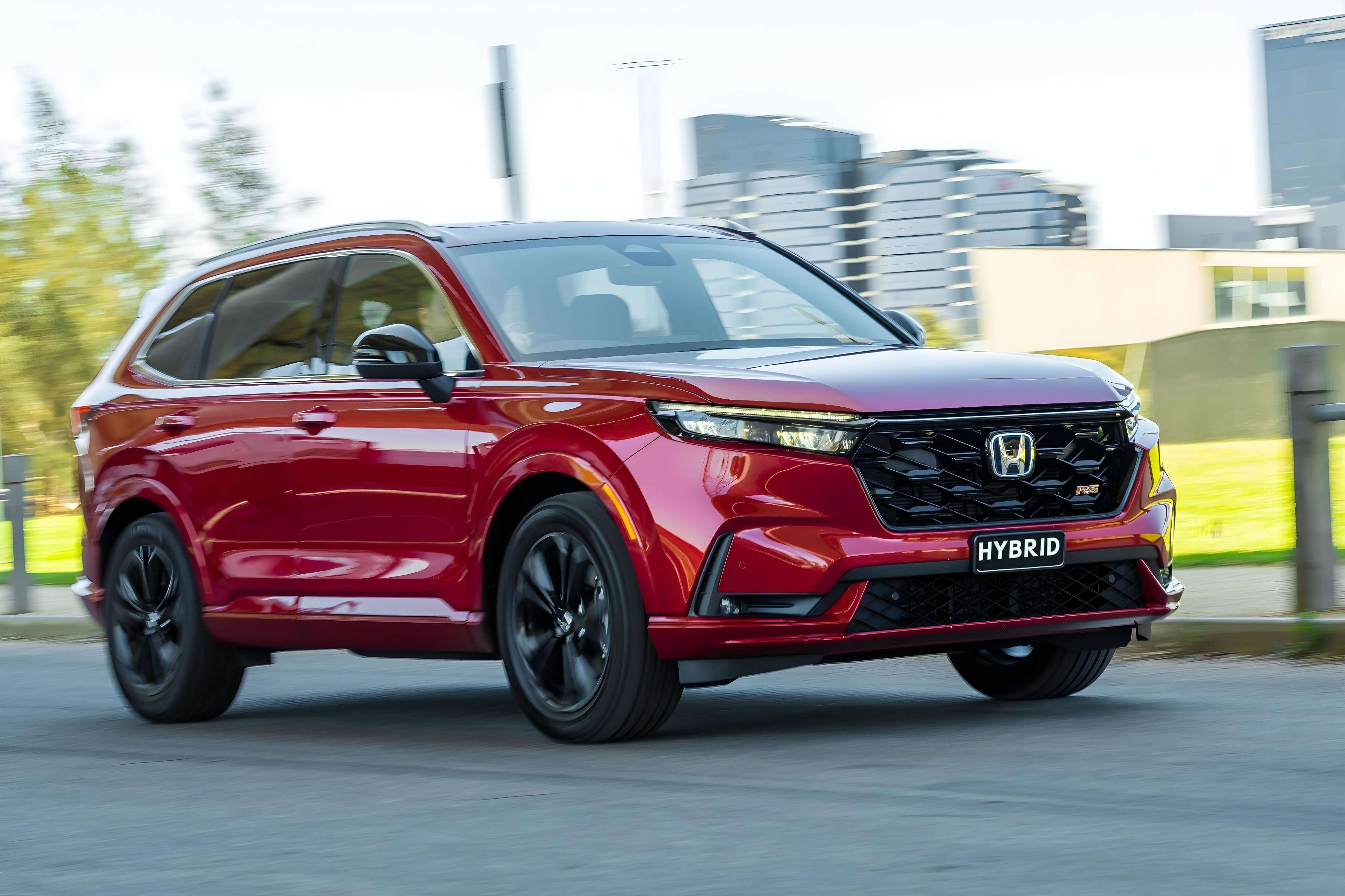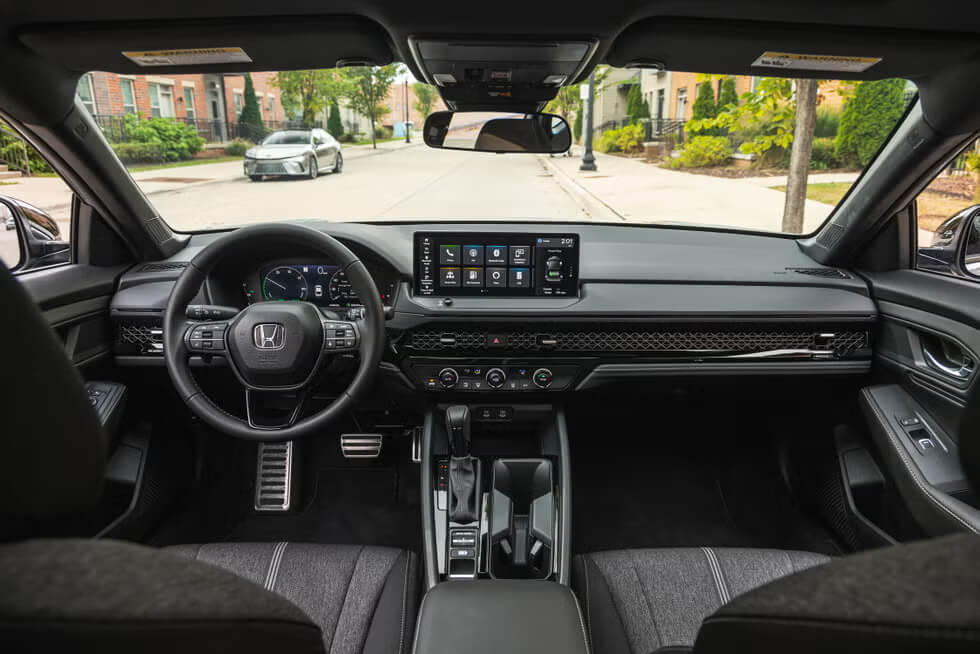Hybrid cars are becoming increasingly popular in 2025. They combine fuel efficiency and environmental friendliness, which attracts drivers. Honda hybrid models stand out from the competition due to their innovative technology. Honda has been working on hybrid systems for a long time. In this article, we'll break down their pros and cons. From fuel economy to complicated maintenance, let's find out if such cars are worth considering.
History of Honda's hybrid technology
Honda began developing hybrids in the late 1990s. The first model was the Insight, released in 1999. It was one of the first mass-produced hybrids in the world. It competed with the Toyota Prius. Back then, the Insight offered fuel economy and low emissions. However, the technology of those years was limited. For example, the batteries wore out quickly.
By 2025, Honda has significantly improved its systems. Honda's advanced hybrid technologies, such as i-MMD, have become more efficient. They are used in the CR-V, Accord, and HR-V models. Moreover, the company plans to expand the lineup. This makes Honda hybrids relevant to explore.
i-MMD technology: how Honda hybrids work
The i-MMD (Intelligent Multi-Mode Drive) system is the basis for Honda's hybrid models. It combines a petrol engine and two electric motors. The engine runs on the Atkinson cycle. This improves fuel efficiency. The electric motors provide traction at low speeds. For example, in the city, the car runs on electric traction.
On the motorway, the petrol engine is switched on. It either drives the wheels directly or charges the battery. What's more, the system automatically selects the operating mode. This makes for a smooth driving experience. In this way, Honda's hybrid technology strikes a balance between power and economy.
Advantages of Honda hybrid models
Honda hybrids have many pluses. Firstly, fuel economy. For example, the Honda CR-V Hybrid consumes about 5 litres per 100 km in the mixed cycle. This is 25% less than its petrol counterparts. Secondly, lower emissions. Electric traction in the city reduces CO2 emissions.
Another advantage is dynamics. Electric motors give instant torque. For example, the Honda Accord Hybrid accelerates to 100 km/h in 7.5 seconds. Hybrids are also quieter than petrol cars. Moreover, they do not require external charging. The battery is charged on the move. As a result, Honda hybrid models are suitable for long journeys.
Honda hybrids disadvantages: what to look out for
Hybrid models have disadvantages. Firstly, the high price. For example, the Honda CR-V Hybrid in 2025 is more expensive than the petrol version by 15-20%. Secondly, complicated maintenance. Hybrid systems require specialised skills. This increases the cost of repairs.
Another problem is the battery. It wears out over time. Replacing it can be expensive. For example, the battery for a Honda Accord Hybrid will cost a hefty sum after warranty. Moreover, hybrids are heavier because of the two motors. This affects the drivability. Thus, Honda hybrids pros cons need to be weighed before buying.
Fuel economy: the real benefits of hybrids
Fuel economy is a key advantage of hybrids. In the city, the Honda HR-V e:HEV can travel up to 50 kilometres on electric power. This reduces petrol consumption. For example, in traffic jams, the engine is often switched off. The electric motor takes the load. As a result, fuel consumption drops.
On the motorway, the economy is less. However, the i-MMD system optimises engine performance. This saves up to 20% of fuel compared to petrol models. Moreover, in regions with high fuel prices, the benefit is more noticeable. This is why Honda hybrid models appeal to frugal drivers.
Sustainability: contributing to the future
Honda hybrids reduce emissions. In city driving, they often run on electric power. This reduces CO2 and other harmful emissions. For example, the Honda CR-V Hybrid emits 30% less CO2 than the petrol version. Hybrids also use lower capacity batteries than electric cars. This reduces the environmental burden of production.
However, there is a nuance. Battery production still harms the environment. Moreover, hybrids do not completely eliminate emissions. Nevertheless, they are a step towards a green future. The resulting Honda hybrid car review shows their contribution to sustainability.
Reliability and durability: what to expect?
Honda is known for reliability. Hybrid systems are no exception. For example, the i-MMD system has proven its durability. Many owners of CR-V Hybrid drive more than 200,000 kilometres without serious breakdowns. Honda also gives a battery warranty of up to 8 years.

However, there are risks. The battery loses capacity over time. This reduces efficiency. Moreover, hybrid systems are more difficult to repair. For example, not every car repair shop can service i-MMDs. As a result, owners should be prepared for possible costs.
Steering and comfort: driving experience
Honda hybrids offer a comfortable driving experience. Electric motors provide a smooth start. For example, the HR-V e:HEV is virtually silent in the city. Also, the i-MMD system automatically switches modes. This makes for a smooth ride.
On the motorway, the petrol engine is efficient. However, some owners note noise at high speeds. Moreover, because of the weight of the battery, handling can be less precise. Nevertheless, Honda's hybrid technology makes driving enjoyable.
Cost of ownership: is it profitable?
The cost of owning a hybrid is higher at the start. For example, the Honda Accord Hybrid is more expensive than the base version by 10-15%. However, the fuel economy makes up for the cost. You can save a significant amount of money in a year. This is especially noticeable in the city.
On the other hand, maintenance is more expensive. For example, replacing the battery after the warranty will cost a large sum. Also, insurance for hybrids can be higher. Moreover, hybrids lose value more slowly in the aftermarket. As a result, Honda hybrids pros and cons require careful calculation.
Comparison with competitors: Toyota and Nissan
Honda competes with Toyota and Nissan. The Toyota Prius is the leader among hybrids. It offers similar fuel economy. However, Honda's i-MMD system is more dynamic. For example, the Accord Hybrid is faster than the Prius on acceleration.
Nissan uses the e-Power system. It works like a series hybrid. It gives smoothness but less power on the motorway. Moreover, Honda offers better build quality. Thus, Honda hybrid models stand out in the market.
The future of Honda hybrids: what to expect?
Honda plans to develop hybrid technology. By 2026, the company will update the i-MMD system. It will become even more economical. Honda also intends to increase sales of hybrids in North America. This is due to the growing demand.
In the future, integration with AI is possible. This will improve energy management. Moreover, Honda may introduce 5G for updates. As a result, Honda's hybrid models will remain competitive.
Conclusion: is it worth buying a Honda hybrid?
Honda hybrid models are a combination of economy and technology. They save fuel and reduce emissions. They also offer comfort and dynamics. However, high price and complicated maintenance are their disadvantages. In 2025, such models will suit those who value the environment and are willing to invest in technology.
If you live in the city and drive a lot, a hybrid will do the trick. For example, the Honda CR-V Hybrid is ideal for family journeys. What's more, Honda continues to improve its systems. Choose a hybrid if you're ready for a long-term investment.

 Honda hybrid models: advantages and disadvantages 2025">
Honda hybrid models: advantages and disadvantages 2025">
